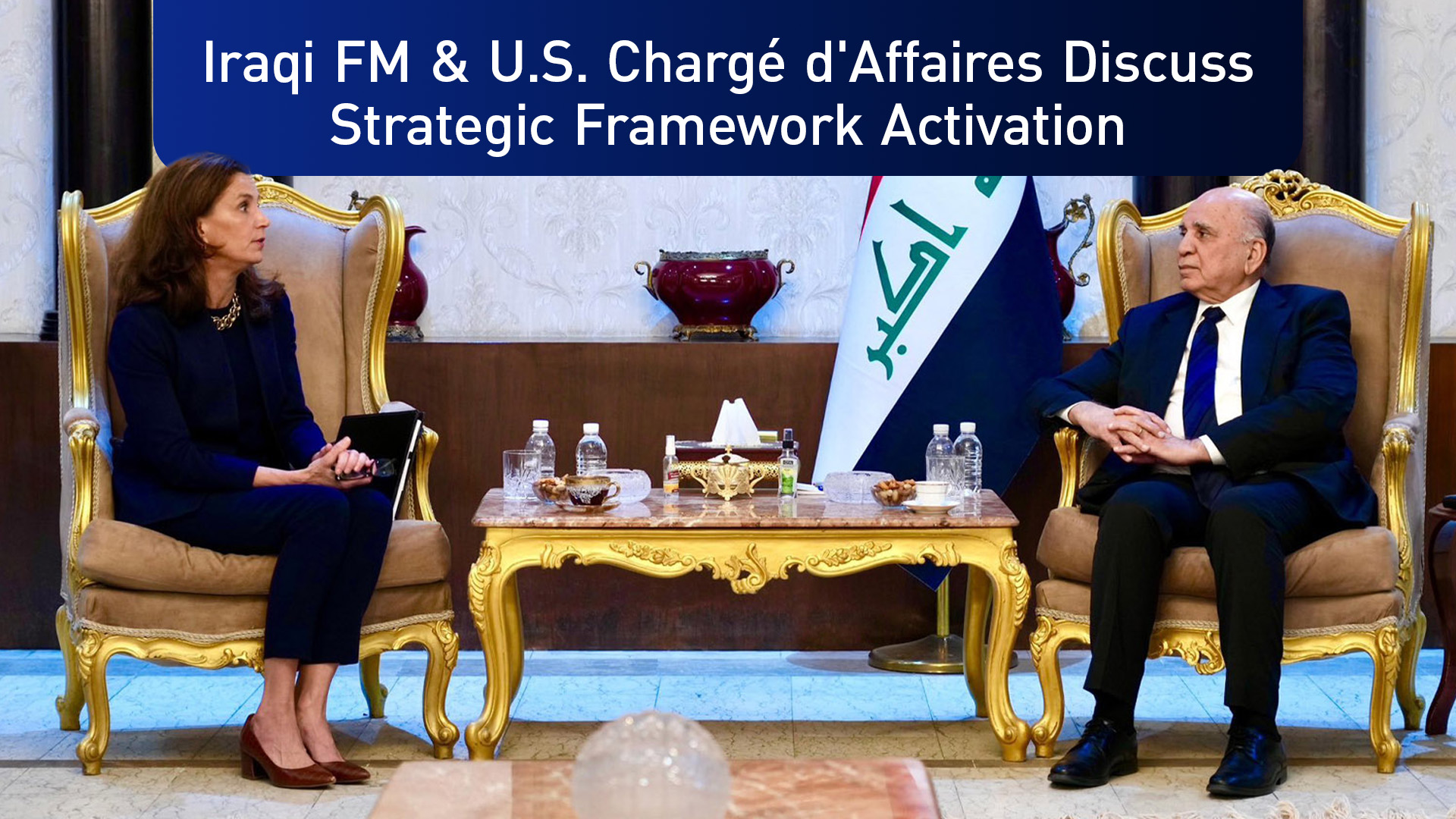Iraqi FM, U.S. Chargé d'Affaires discuss Strategic Framework activation, regional developments
The meeting focused on making preparations for holding a meeting of the Iraqi-US Joint Committee to activate the Strategic Framework Agreement amid evolving regional dynamics.

Jan. 6, 2025
ERBIL (Kurdistan24) – Iraqi Foreign Minister Fuad Hussein held discussions with US Chargé d'Affaires Elizabeth Kennedy Trudeau on Sunday, Jan. 5, 2025.
The meeting focused on making preparations for holding a meeting of the Iraqi-US Joint Committee to activate the Strategic Framework Agreement amid evolving regional dynamics.
According to an official statement from Iraq’s Ministry of Foreign Affairs, the high-level dialogue focused on preparations for the upcoming Joint Committee meeting between Iraq and the United States, especially addressing the implementation mechanism of the Strategic Framework Agreement for Friendship and Cooperation between both countries.
The diplomatic engagement also encompassed critical discussions on regional developments, with particular emphasis on maintaining coordinated approaches to counter-terrorism efforts, specifically concerning the ongoing campaign against ISIS and its hideouts.
This meeting occurs at a crucial moment in US-Iraq relations, reflecting the ongoing evolution of bilateral strategic partnership in the region.
The Strategic Framework Agreement, serving as the cornerstone of US-Iraq cooperation since the post-2003 era, continues to adapt to emerging security challenges and changing regional dynamics.
The emphasis on counter-terrorism cooperation underlines the persistent security concerns in the region, while the focus on strategic framework activation suggests both nations are seeking to strengthen institutional ties beyond immediate security considerations.
This diplomatic engagement represents an important step in recalibrating bilateral relations within the context of broader regional stabilization and de-escalation efforts.
The timing of these discussions and meetings is particularly relevant given the current regional tensions and the continuous necessity for coordinated international responses to security challenges in the Middle East.